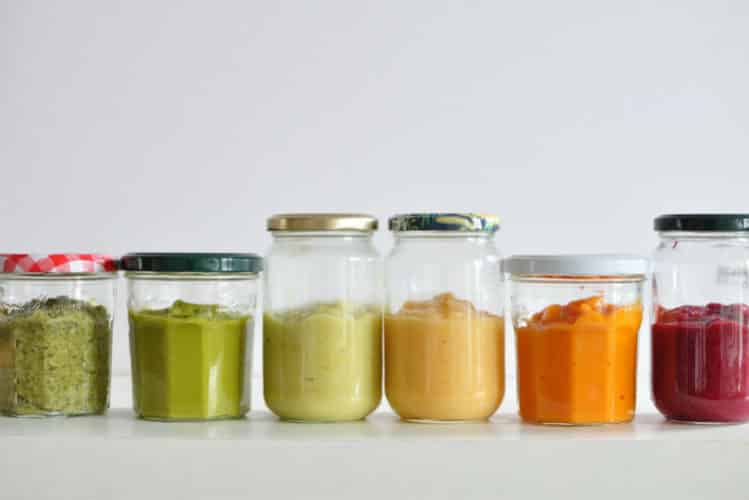If you would like to learn more about homemade and store-bought purées, read the entry on this topic – The Differences Between Homemade and Store-Bought Purées.
Allergens and possible reactions should, of course, always be considered. Many parents hesitate to give certain foods to their baby because they fear they will cause a severe allergic reaction. For new parents, I know it’s difficult to follow the process of introducing potential allergens in your baby’s diet, especially if you raised a child under the previous dietary recommendations.
The latest recommendations from the Institut National de Santé Publique and Health Canada date from 2015/2016, encouraging parents to introduce allergens early on in their baby’s food, avoiding delays. The latest research shows that a baby exposed early on will be better protected from the allergy if regularly received at a young age. This contrasts to what was previously suggested with the increased risk of severe reactions to specific foods.
Current recommendations for the introduction of allergenic foods suggest adding eggs, natural creamy peanut, nut or seed butter (crunchy after four), fish and seafood after six months, after giving them meat in their daily meal.
Because you give a new food one at a time, check for potential signs or clinical/physical manifestations after introducing each food.
How can you know if your baby is intolerant, sensitive or allergic to food? Good question! Here are the potential clinical signs:
Clinical signs or manifestations of food sensitivity:
- Skin: you can see a rash, swelling, puffiness or itchiness;
- Respiratory system: you can note more sneezing, runny nose, congestion, coughing or shortness of breath;
- Digestive system: you can note colic, vomiting or diarrhea;
- Eyes: the baby can have red eye conjunctivitis, tearing or itchy eyes.
Clinical signs or manifestations of serious reactions to food:
- General state changes quickly and is worrying (abnormal);
- Note swelling of their mouth, lips or tongue;
- Of course, if the baby has difficulty breathing;
- If they suddenly vomit.
So voila, this is the first part of the blog on homemade purées. We’ve set the table before jumping into how to make them. I received many questions about this theme. How do I cook the food? How can I make smoother purées? How do I serve them? How much should I give our baby? And how do I store them?
For all the answers, read the next part of the blog Making Your Purées.
Talk soon,
Marie
The Baby Expert


